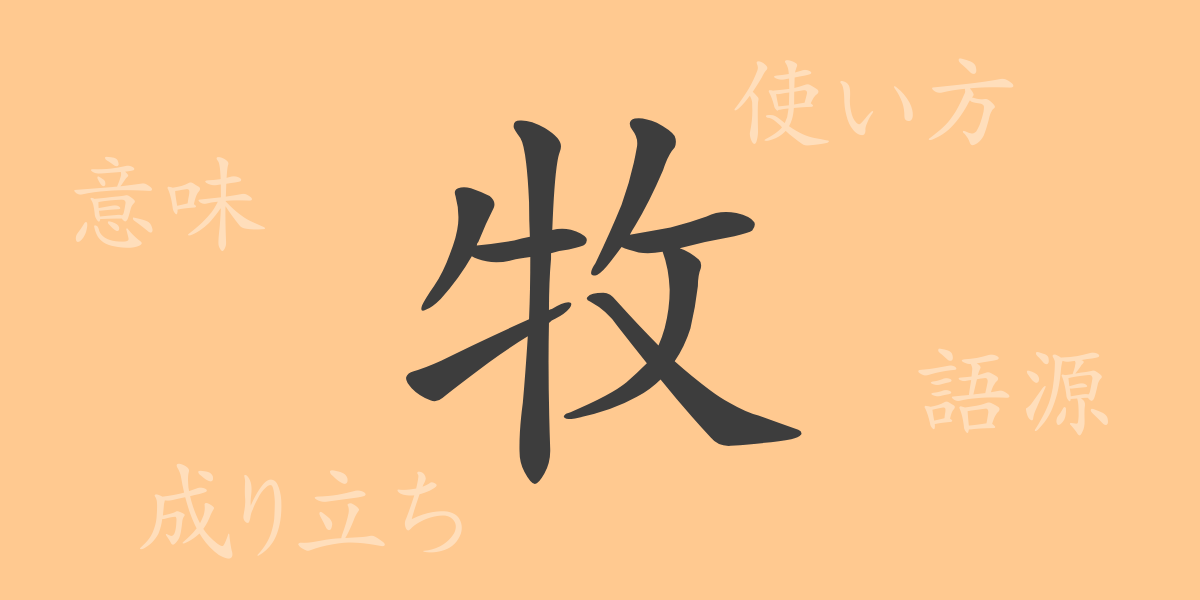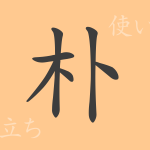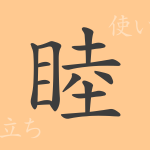Japan’s written culture has a deep history, and among its characters, 常用漢字 (jōyō kanji) are frequently used in daily life. The theme of this article is the 常用漢字 (jōyō kanji) “牧” (maki), which symbolizes the relationship between nature and humans. Words related to “牧” (maki) such as “牧場” (bokujō, ranch) and “牧羊犬” (bokuyōken, sheepdog) are abundant in our surroundings. But what kind of history and meaning lie behind this character? In this article, we will delve into the origins, readings, and usages of “牧” (maki).
The Origin of 牧 (maki)
The origin of the kanji “牧” (maki) dates back to ancient China. This character is composed of “牜” (niú, meaning cow) and “攵” (pū, a variant of 攴, a radical indicating an ancient action of striking). Originally, “牧” (maki) depicted the act of herding cattle by striking and managing them. Over time, it came to refer to a broader range of livestock activities, including sheep and horses.
The Meaning and Usage of 牧 (maki)
The kanji “牧” (maki) primarily means “to raise livestock” and “to take care of livestock.” Its usage can be seen in various contexts related to animal husbandry. “牧場” (bokujō, ranch) is a place for raising livestock, “牧羊犬” (bokuyōken, sheepdog) is a dog that manages sheep, and “牧歌的” (bokkateki, pastoral) is an adjective that evokes rural scenery. Metaphorically, “人を牧する” (hito o maki suru) means to guide or manage people.
Readings, Stroke Count, and Radical of 牧 (maki)
Understanding the readings and structure of the kanji “牧” (maki) is also important.
- Readings: The on’yomi (音読み) is “ボク” (boku), and the kun’yomi (訓読み) is “まき” (maki).
- Stroke Count: “牧” (maki) has 8 strokes.
- Radical: The radical of “牧” (maki) is “牛” (niú), a common radical in kanji related to livestock.
Idioms, Phrases, and Proverbs Using 牧 (maki)
There are many idioms, phrases, and proverbs that include the kanji “牧” (maki), and understanding them can enhance your Japanese expression. For instance, “牧歌的な生活” (bokkateki na seikatsu) means a peaceful and idyllic life, “牧場経営” (bokujō keiei) refers to the business of raising livestock, and “羊を牧う” (hitsuji o maku) metaphorically expresses guiding or managing by taking care of sheep.
Summary of 牧 (maki)
In this article, we explored the kanji “牧” (maki), from its origins to its meanings, usages, readings, and related idioms and phrases. Understanding 常用漢字 (jōyō kanji), which play a crucial role in Japanese language, is essential for enjoying the rich expressions of Japanese. We hope that this knowledge will be helpful in your Japanese learning and daily life.

























